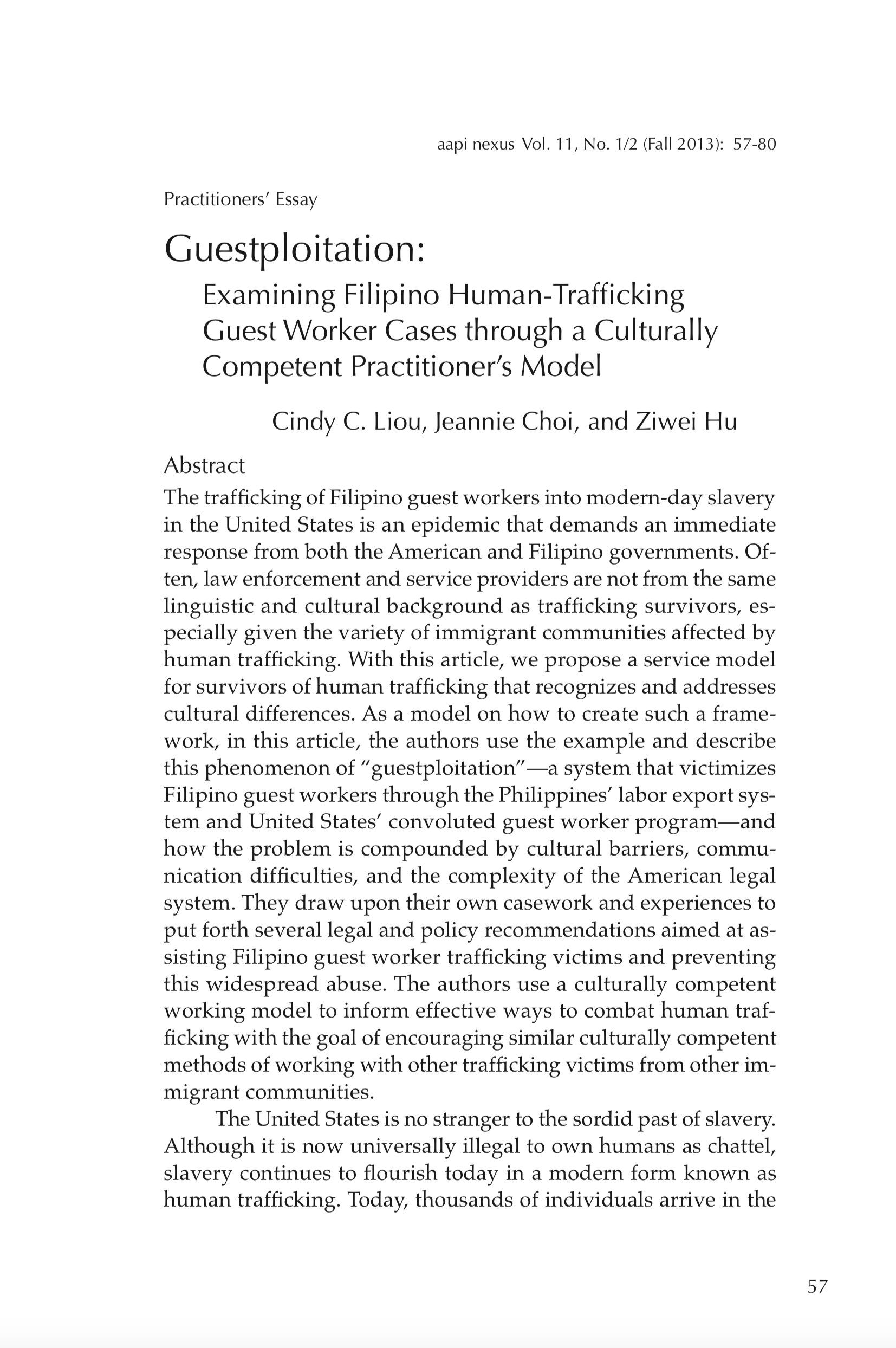“Guestploitation: Examining Filipino Human-Trafficking Guest Worker Cases through a Culturally Competent Practitioner’s Model”
Volume 11:1-2, p. 57 (2013)
by Cindy C. Liou, Jeannie Choi, and Ziwei Hu
ABSTRACT: The trafficking of Filipino guest workers into modern-day slavery in the United States is an epidemic that demands an immediate response from both the American and Filipino governments. Often, law enforcement and service providers are not from the same linguistic and cultural background as trafficking survivors, especially given the variety of immigrant communities affected by human trafficking. With this article, we propose a service model for survivors of human trafficking that recognizes and addresses cultural differences. As a model on how to create such a framework, in this article, the authors use the example and describe this phenomenon of “guestploitation”—a system that victimizes Filipino guest workers through the Philippines’ labor export system and United States’ convoluted guest worker program—and how the problem is compounded by cultural barriers, communication difficulties, and the complexity of the American legal system. They draw upon their own casework and experiences to put forth several legal and policy recommendations aimed at assisting Filipino guest worker trafficking victims and preventing this widespread abuse. The authors use a culturally competent working model to inform effective ways to combat human trafficking with the goal of encouraging similar culturally competent methods of working with other trafficking victims from other immigrant communities.
PREVIEW:

 Download
Download
Article Citation:
Cindy Liou, Jeannie Choi, and Ziwei Hu (2013) Guestploitation: Examining Filipino Human-Trafficking Guest Worker Cases through a Culturally Competent Practitioner’s Model. AAPI Nexus: Policy, Practice and Community: 2013, Vol. 11, No. 1-2, pp. 57-80.
